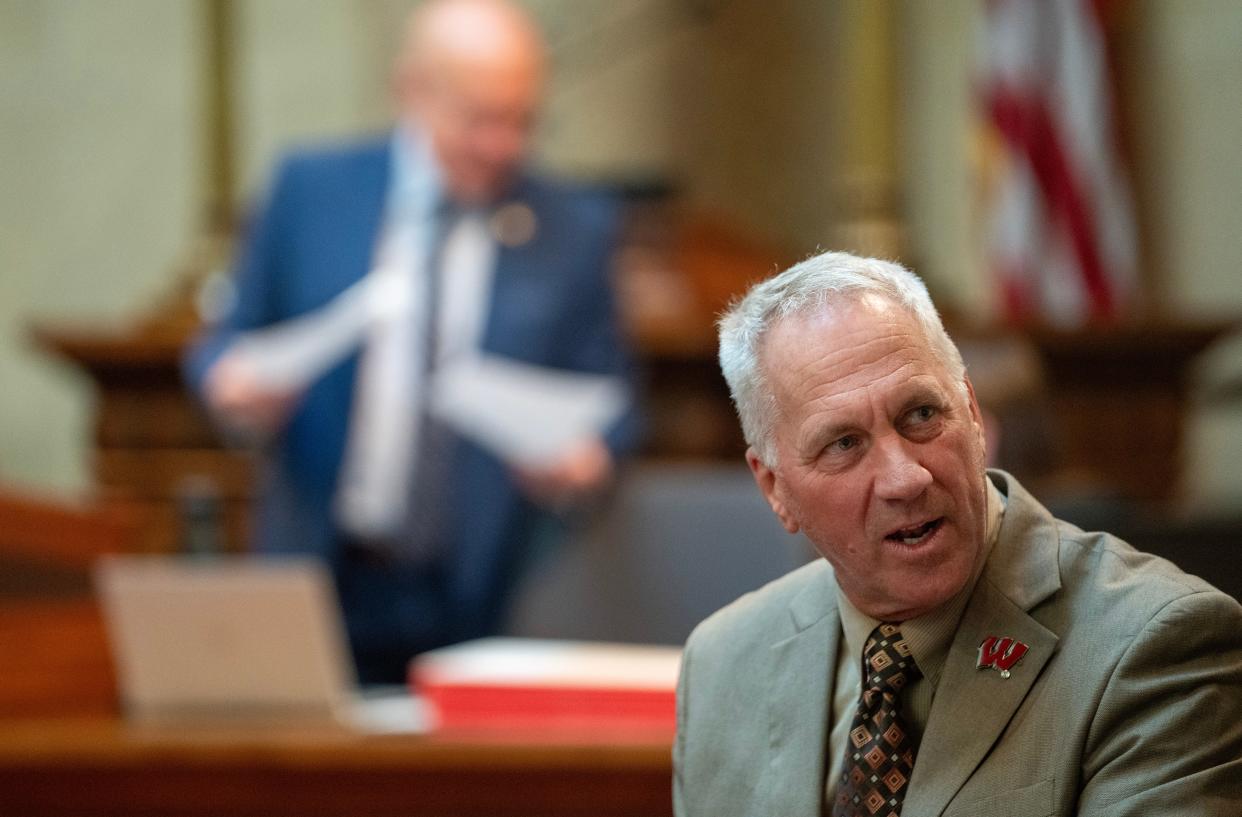These proposed laws had bipartisan support but failed to pass the Legislature
MADISON – Members of the state Senate this week took what were likely the Republican-led Legislature's final votes of the year, leaving some high-profile bipartisan proposals to wither on the vine.
The state Assembly concluded its business late last month and lawmakers are not expected to return to their respective chambers until next year — following their first election under a new set of electoral maps that will reshape down-ballot races in this battleground state.
Here are five bipartisan bills that cleared one chamber but not the other.
Task force on missing and murdered Black women

A bill that would create a task force within the state Department of Justice charged with examining factors that contribute to violence against Black women and girls received overwhelming bipartisan support in the Assembly last month — but the Senate did not take it up.
"Violence is an issue that impacts every woman and girl of all racial backgrounds, but it is harming and killing us Black women and girls at the highest rate. This is a human trafficking issue," said bill author Rep. Shelia Stubbs, D-Madison, on the Assembly floor.
The proposal almost didn't receive a Senate committee hearing, as Sen. Duey Stroebel, R-Town of Cedarburg, opposed it on the grounds that it would allow "government to prioritize justice based on a victim’s race or gender," according to a statement provided to Wisconsin Watch. It was transferred to another committee, which had a hearing last week.
During the Senate hearing, bill author Sen. Jesse James, R-Altoona, referenced an investigation by The Guardian that found the homicide rate of Black women and girls doubled in Wisconsin in 2020, making it the highest in the nation.
Before the Assembly voted on the measure, Rep. Michael Schraa, R-Oshkosh, voiced his frustration with the bill's fate.
"I’m so disgusted. We wonder why the taxpayers have such a low approval rate of Congress and people in this chamber and it's because of these things," Schraa said. "There’s no reason that this should be killed in the other chamber."
More: The Legislature has wrapped up its session. Here are bills headed to Gov. Tony Evers or to voters
'Monday count' for absentee ballots

The Republican-led Senate adjourned on Tuesday without approving a bipartisan bill that would allow election clerks to start processing absentee ballots the day before Election Day, leaving open the door to more false claims by Republican former President Donald Trump about the integrity of Wisconsin's elections.
Under current law, Wisconsin election workers may not count absentee ballots until Election Day. In Milwaukee, that means processing at times more than a hundred thousand ballots while also administering the polls.
Clerks and bipartisan lawmakers have pushed lawmakers to allow them to start processing absentee ballots the Monday before Election Day to prevent voter confusion and conspiracies that result from large amounts of ballots being processed late and added to totals, sometimes changing which candidate is in the lead.
The Assembly passed the bill in November, but it stalled in the Senate, where election committee chairman Dan Knodl refused to bring it to a vote.
Expanding expungement eligibility
Under a bipartisan bill the Assembly passed last month, people convicted of a non-violent, low-level felony or misdemeanor would be able to apply for expungement regardless of their age as long as they have no previous felony convictions. Those who qualify could apply for expungement a year after completing their sentence, meaning they wouldn't have to ask before their trial.
The bill would allow a sentencing court to declare a person's record ineligible for expungement, select minor crimes would be exempt from expungement consideration, and each person could only request one expungement. People could submit a second petition for expungement if their first were to be denied, but they would have to wait two years and pay a $100 fee the second time around.
Under current state law, anyone over the age of 25 at the time of their offense is ineligible for expungement. Wisconsin is the only state in the nation where past and closed cases are not eligible for expungement, and one of just a handful that limits eligibility based on age, according to a 2018 Wisconsin Policy Forum report.
It's the third time Rep. David Steffen, R-Green Bay, has introduced such a bill since 2019, each time receiving overwhelming bipartisan support in the Assembly and dying in the Senate.
Extending postpartum Medicaid coverage

A bill with bipartisan support would have allowed low-income mothers who make more than the poverty threshold to stay on BadgerCare Plus, the state's largest Medicaid program, for a full year after giving birth — when they may still be at risk of life-threatening, post-pregnancy complications — instead of only two months.
Currently, only mothers who make as much as or less than the poverty threshold qualify to stay on BadgerCare Plus beyond the second month after delivery. About four of every 10 births in Wisconsin are covered by BadgerCare Plus.
The bill passed the Senate on a 32-1 vote in September, but never received an Assembly vote. Assembly Speaker Robin Vos, R-Rochester, explained his opposition to the proposal during a Q&A with Wisconsin Health News last year, arguing people should be encouraged to leave public-sector coverage and enter the private marketplace "as quickly as possible."
'Right of first refusal' for transmission lines
After the legislation passed the Assembly last month, the Senate did not hold a vote on a proposal to establish a right of first refusal for utilities already doing business in Wisconsin, allowing the owners of transmission lines to build lines that connect to their existing ones without having to compete with out-of-state companies for the projects.
The proposal has been the subject of intense lobbying efforts by utilities and labor unions to get the legislation passed, while groups including Americans for Prosperity and the Wisconsin Industrial Energy Group pushed against it.
The utilities argue they can do the work at a lower cost by working with an existing workforce in an area they know well, and within the regulatory purview of the state's Public Service Commission. They're joined in pushing for the bill by construction and electrical unions concerned that work they could go to non-union, out-of-state companies.
Opponents argue that competitive bidding would result in lower costs that can hold down electric bills for Wisconsin residents and businesses.
The result of the bill's not advancing means utilities still have to compete with out of state companies.
Jessie Opoien can be reached at jessie.opoien@jrn.com.
This article originally appeared on Milwaukee Journal Sentinel: These high-profile bipartisan Wisconsin bills failed to pass
